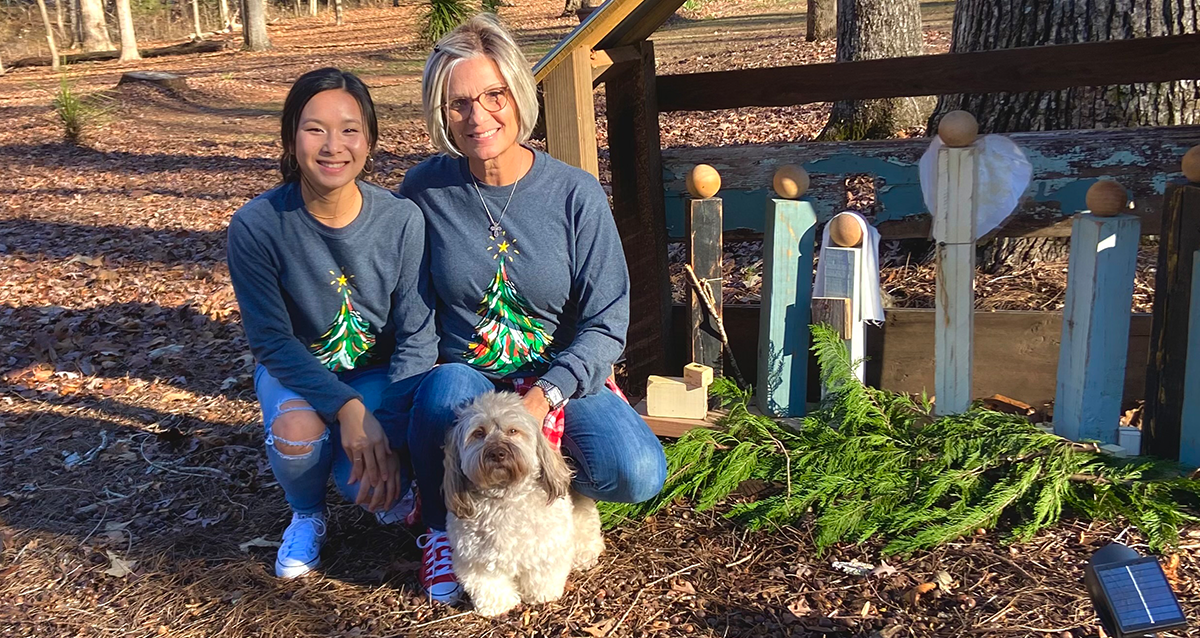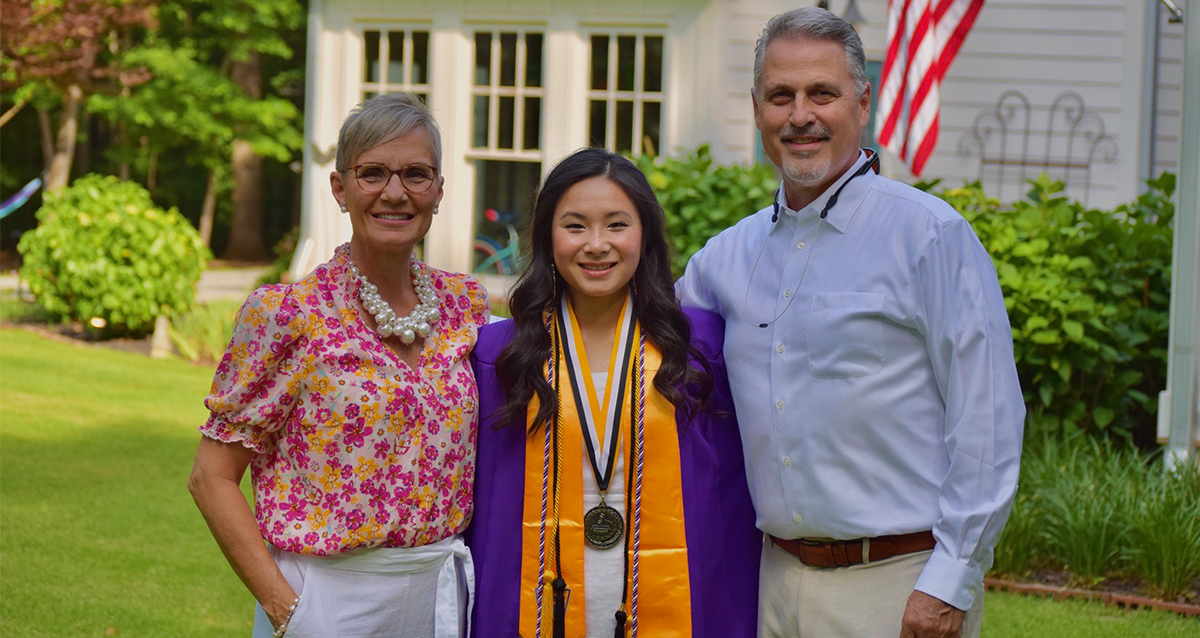


Pearl S. was in high school when her mom, Andrea, was diagnosed with stage 3C ovarian cancer in 2020. Pearl learned to navigate the everyday stressors of life, COVID-19 precautions and her mom’s cancer diagnosis. As a recent high school graduate, Pearl is in her freshman year of college, with dreams of becoming a biomedical researcher. Her mom’s own fight with cancer inspired Pearl to pursue medical research as a way to help other families navigating similar diagnoses. Here, Pearl shares what helped her navigate her mom’s diagnosis and treatment.

